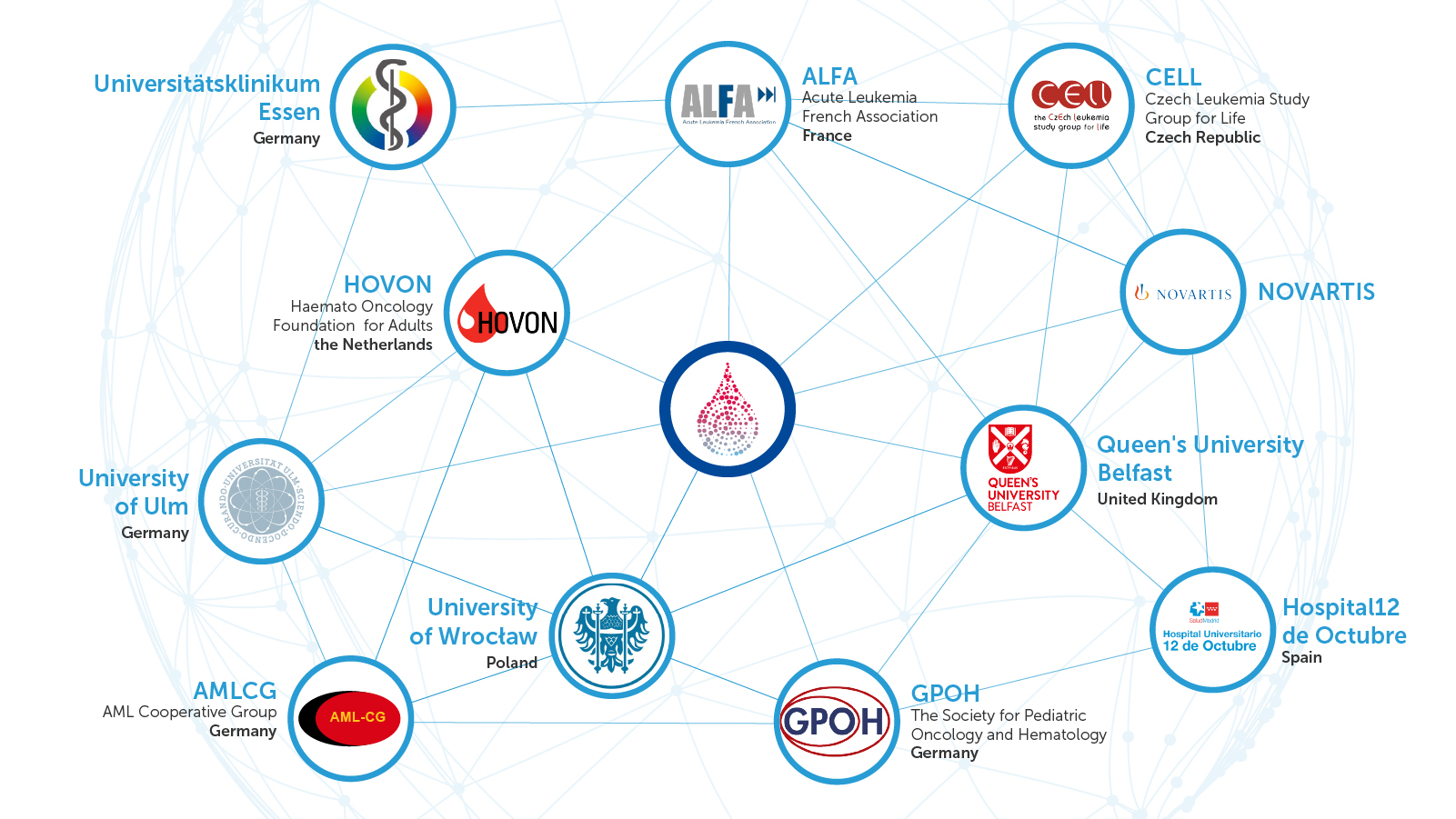Home> Research Projects> AML-3: Using big data to shed light on the clinical impact of genomic alterations in sAML/tAML
Secondary Acute Myeloid Leukemia (sAML) and therapy-related AML (tAML) are distinct types of AML characterised by complex underlying genetic profiles. Better understanding of the molecular basis of these different types of AML is vital to determine the potential impact on patient outcomes and help guide treatment choice in clinical practice.

Secondary AML (sAML) occurs in patients with a history of previous myeloid malignancy and can also develop as a consequence of prior exposure to cytotoxic or radiotherapy – a condition known as therapy-related AML (tAML). sAML and tAML are estimated to account for 30% and 10% of all AMLs, respectively, but their identification can be clinically challenging. The prognosis for patients with sAML currently remains poorer than in de novo AML, with shorter overall survival (OS) and lower remission rates. Both sAML and tAML are also characterized by a complex molecular profiles and these underlying gene-gene interactions can exert a significant impact on patients’ prognosis and clinical outcomes.
This project will harness the power of the HARMONY Big Data platform to analyse the genetic profiles of patients with sAML and tAML and explore how genomic alterations influence clinical outcomes. The study will be observational, retrospective and multicenter and will focus on clinical, analytical and molecular data for all sAML/tAML patients – over 1000 cases in total – included in the HARMONY database. Subgroup analyses will be performed for genetic profiles of sAML/tAML and genomic alterations will then be correlated with outcomes and prognosis using measures such as OS, event-free survival and predictive values. The study will also evaluate the role of epigenetic therapy and allogenic stem cell transplant in sAML/tAML patients, particularly as compared to standard intensive induction/consolidation therapy.
Insights from this study will aid in the molecular diagnosis of sAML, which can currently be clinically misdiagnosed as de novo AML, and enable pinpointing of clinically relevant subgroups based on key prognostic information. Findings will also help clinicians in selecting the best treatment options for patients with sAML/tAML by correlating genomic profiles with likely outcomes. This is particularly important in today’s era of genetically-directed medicine where treatment options for AML now include novel tailored drugs, such as those targeting specific genetic mutations like IDH or FLT3, in addition to standard therapeutic approaches.
The ultimate hope is that this research will lead to the implementation of better therapeutic approaches in sAML and tAML where there is still significant scope to improve patients’ survival outcomes.
Data gathering November 2020‒January 2021 | Statistical analysis February‒April 2021 | Preparation of manuscript by June 2021